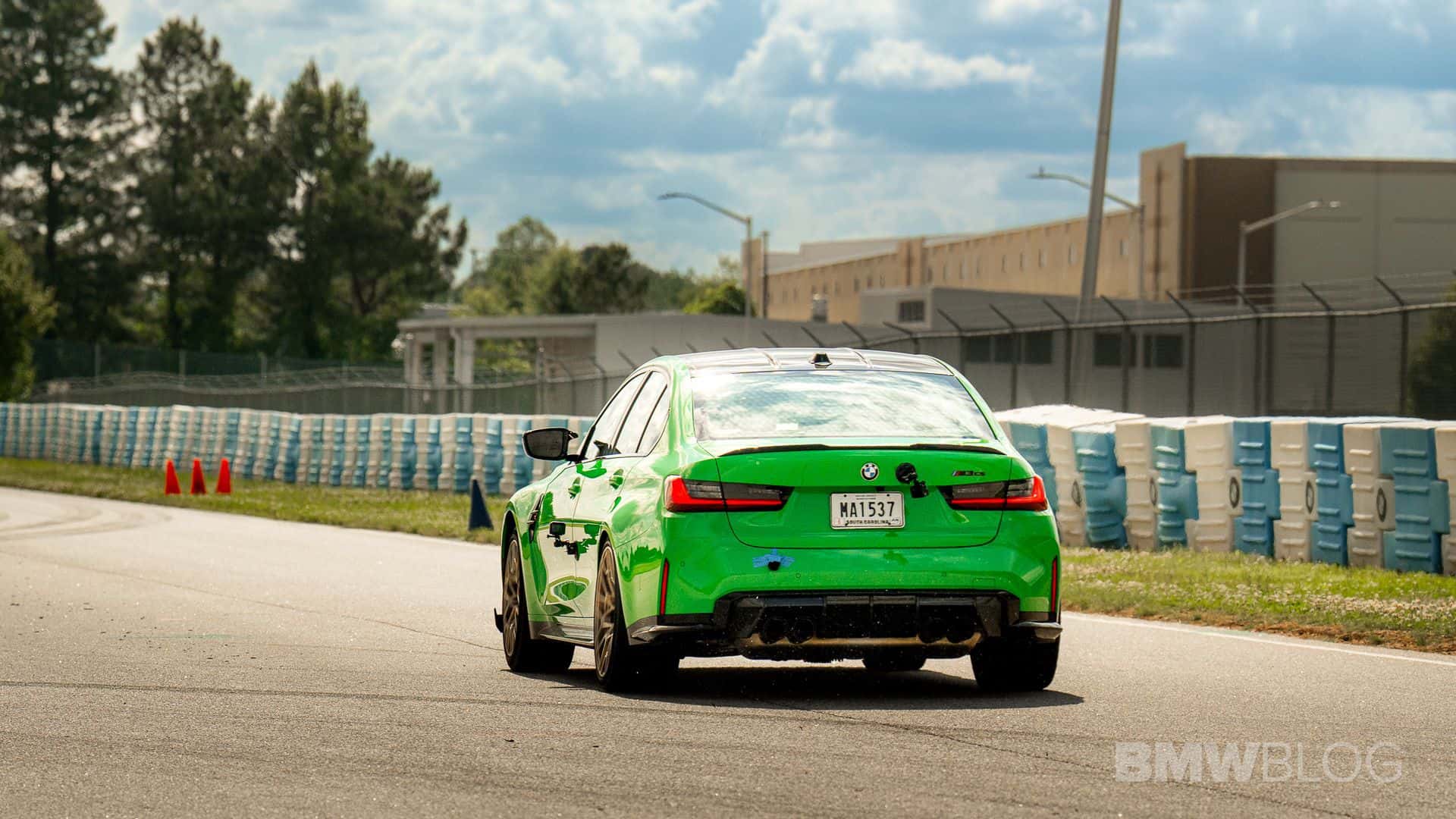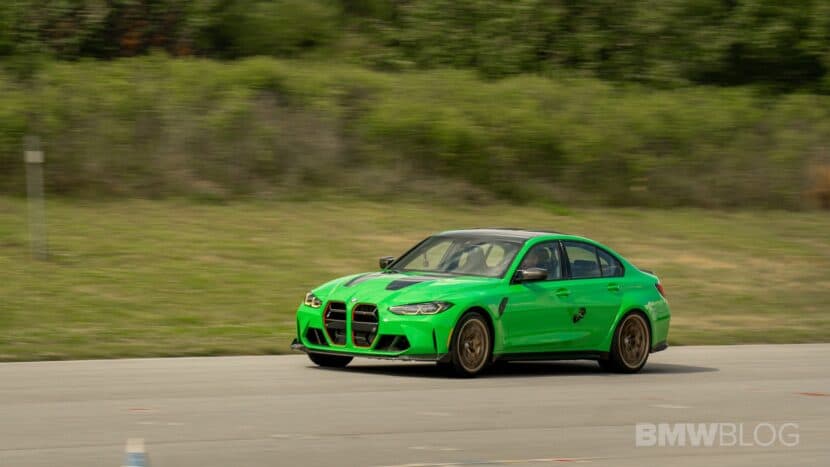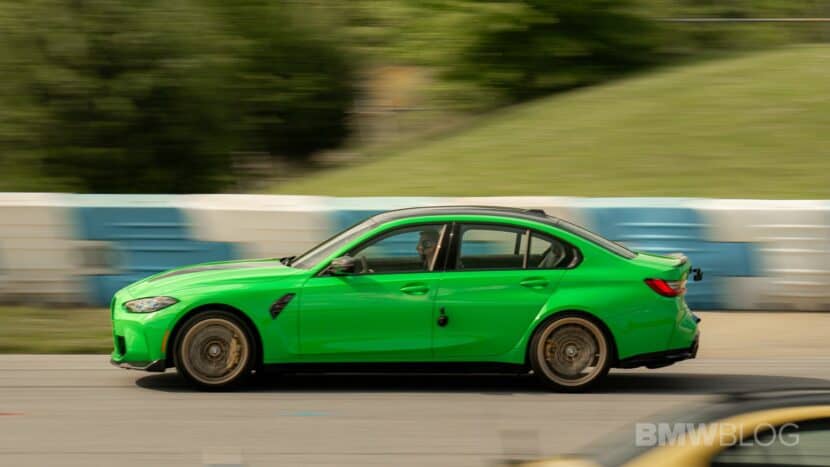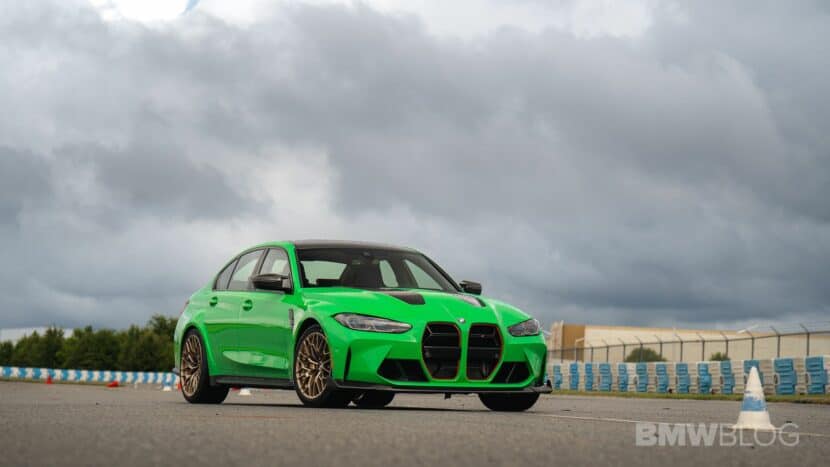The sixth-generation BMW M3 G80 has been a hot-button topic since its public release. Initially deemed unattractive, it gradually became an acquired taste. However, it’s time to focus on the important aspects. The first drives changed everyone’s perception, as the driving experience proved to be fantastic, complemented by fabulous seats and interior. Notably, this latest generation made significant advancements, especially in the drivetrain department. The base model M3’s impressive 470+ horsepower is no joke, and the S58 engine’s versatility and power are instantly legendary. The current generation platform, thanks to good design, still has plenty of life left, but as is customary for BMW, we are already looking ahead to what’s next.
ICE M3, PHEV M3 or EV M3?
With upcoming Euro regulations tightening across the board, discussions about hybrid and EV development are gaining momentum for our beloved M cars. While BMW is fully embracing the cause and ready to take on the world, the question remains: can a true M car be electric or even a hybrid? Or should it stay ICE? Clearly, the U.S. market currently still demands combustion and high-powered performance cars. Of course, this presents an opportunity for German car companies to continue to fill this demand.
Naturally, the real M car historically addressed that horsepower itch. The strong sales of similar vehicles in this sector are undeniable, and it’s evident that the demand for more exists in the US. While some may not entirely agree, it’s fair to argue that the G80 and its future successor car belong to the same market. But is that the right move?
Don’t make the M3 too fat to fly
An M car, especially the M3, is known for its nimbleness and agility. It has always been that way. Among all the M car enthusiasts, the M3 crowd is the most inclined towards the sports car mentality. We cherish the history and meaning behind that badge. As the BMW model designation increases in size, the car starts to cater more to the suited-up office commuter rather than the spirited driver.
Although EV technology is improving, battery packs are still heavy and cumbersome. I believe the M3’s pedigree demands a higher standard than that, and most M3 customers aren’t looking for the selling points of varying battery ranges. Many EVs still face packaging issues with battery placement, and M3 owners aren’t fond of buying trendy gimmicks or untested tech. Historically, we have sought a solid and reliable pedigree that excels in every aspect of driving. Most likely, the next-gen M3 will be an all-around exceptional car, and it shouldn’t be held back by limited battery range and developing charging stations. And BMW will attempt to solve that problem with the new Gen6 battery packs.
Going all-in as a real enthusiast: M3 will sell like hotcakes
BMW’s journey towards an electric future should provide more emissions credit room for the M class cars, allowing them to remain regular combustion engine performance cars, at least for a while. The anticipated “Neue Klasse” BMW wave is still a couple of years away. If BMW wishes to develop an EV M3, there’s plenty of time to craft something properly sorted with revolutionary levels of goodness. There is no room for a plug-in hybrid trial and error! It’s either you go full steam ahead with electric drivetrains or at least extend the combustion-powered M3s for as long as possible.
However, an all-electric BMW M3 won’t succeed unless it feels like a true M3 should, setting it apart from the rest of the EV market. While it’s challenging to describe exactly what that means, enthusiasts understand what we need in an M3. Going halfway on the next-gen M3 won’t attract sales. M3 buyers seek pedigree, not new territory innovation. We are a demanding and discerning crowd, aren’t we? There’s no room for indecisiveness; BMW must go the full length.
Make the M3 legendary again, and people will undoubtedly line up around the block to order them. I’ll see you in line! But what do you think? Should the next BMW M3 be ICE, PHEV or EV?








































































